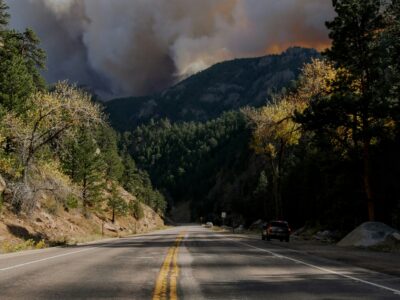Still More About the Keystone XL Pipeline
I am opposed to the construction of the Keystone XL pipeline. Nonetheless, I find myself somewhat in disagreement with my blogging neighbor Jonathan Zasloff on this one, and somewhat in agreement with Joe Nocera.
Yes, as Nocera argues, as long as there is demand for oil, energy producers will keep looking for new supplies to exploit. But there is a tragic flaw underlying the assertion that we might as well take the tar sands oil because, if we don’t, somewhat else will. It is just another version of the tragedy of the commons.
The critical question underlying the Keystone XL debate is hardly ever highlighted in the media: When, if ever, will the United States acknowledge its out-sized role in accelerating greenhouse gas emissions and when will it do something about it? The U.S. should say “no” to Keystone because the pipeline would ease the flow of particularly carbon-intensive fossil fuel. The U.S. should say “no” as a matter of moral imperative. If the U.S. won’t stand for the proposition that the specter of climate change demands extraordinary acts of global responsibility, how can it expect Canada to do so? How can it expect China or India to do so?
Jonathan offers an incomplete picture of what might happen if a rejection of the pipeline led to higher oil prices. First of all, it probably wouldn’t, since oil prices are set globally and this is a time of accelerated development of oil in the U.S. and elsewhere. But if it did, in the short run, the result would not do much to improve the competitive posture of solar, wind, and micro hydro. These sources compete for price with natural gas and coal, not with oil. In the long run, higher oil prices could hasten a transition to electric vehicles, and those vehicles could use electric power, which might partially reflect the cost of solar, wind, and hydro. Perhaps more significantly, however, a higher price for oil prompts more oil development. As prices increase, the economic rationale improves for seeking exotic oil sources requiring more energy-intensive recovery processes.
When Nocera asks if environmental groups can expect to win a series of fights to prevent tar sands development for decades to come, he is pretty much describing the very nature of environmental advocacy. There is no guaranteeing that people will stop trying to do things that could lead to environmental degradation, so it is almost always a matter of trying to win battles, while never resolving the war.
Reader Comments
6 Replies to “Still More About the Keystone XL Pipeline”
Comments are closed.






Actually, there are lots of oil-fired power plants, just not in the United States. Apparently, the use of oil for power generation just hit a two-year high in the UK. Who knew?
http://www.platts.com/RSSFeedDetailedNews/RSSFeed/ElectricPower/6900834
And of course in lots of other countries, there are many oil-fired plants. Moreover, oil is used for home heating, which I think could be replaced with renewable power generation. So I still think that there is some replacement there — at least enough to make the tar sands issue credible.
But I agree with your overall point: if environmentalists should stop doing things when it will hard for them (us?) to win over a long period of time, then that is a prescription to just fold the tent and go home.
Actually, there are lots of oil-fired power plants, just not in the United States. Apparently, the use of oil for power generation just hit a two-year high in the UK. Who knew?
http://www.platts.com/RSSFeedDetailedNews/RSSFeed/ElectricPower/6900834
And of course in lots of other countries, there are many oil-fired plants. Moreover, oil is used for home heating, which I think could be replaced with renewable power generation. So I still think that there is some replacement there — at least enough to make the tar sands issue credible.
But I agree with your overall point: if environmentalists should stop doing things when it will hard for them (us?) to win over a long period of time, then that is a prescription to just fold the tent and go home.
The subject at hand was the factors affecting and affected by a U.S. decision on the pipeline, which is why it is the very non-oil power mix in the U.S. that might be of primary concern. However, if cheap natural gas is available in countries that are oil-dependent for power, it is gas that will be pushing oil-fired plants out of the fuel mix (just as it is pushing coal out of the mix in the U.S.) and it is the price of natural gas that is likely to be most of interest to solar, wind, and small hydro developers.
The subject at hand was the factors affecting and affected by a U.S. decision on the pipeline, which is why it is the very non-oil power mix in the U.S. that might be of primary concern. However, if cheap natural gas is available in countries that are oil-dependent for power, it is gas that will be pushing oil-fired plants out of the fuel mix (just as it is pushing coal out of the mix in the U.S.) and it is the price of natural gas that is likely to be most of interest to solar, wind, and small hydro developers.